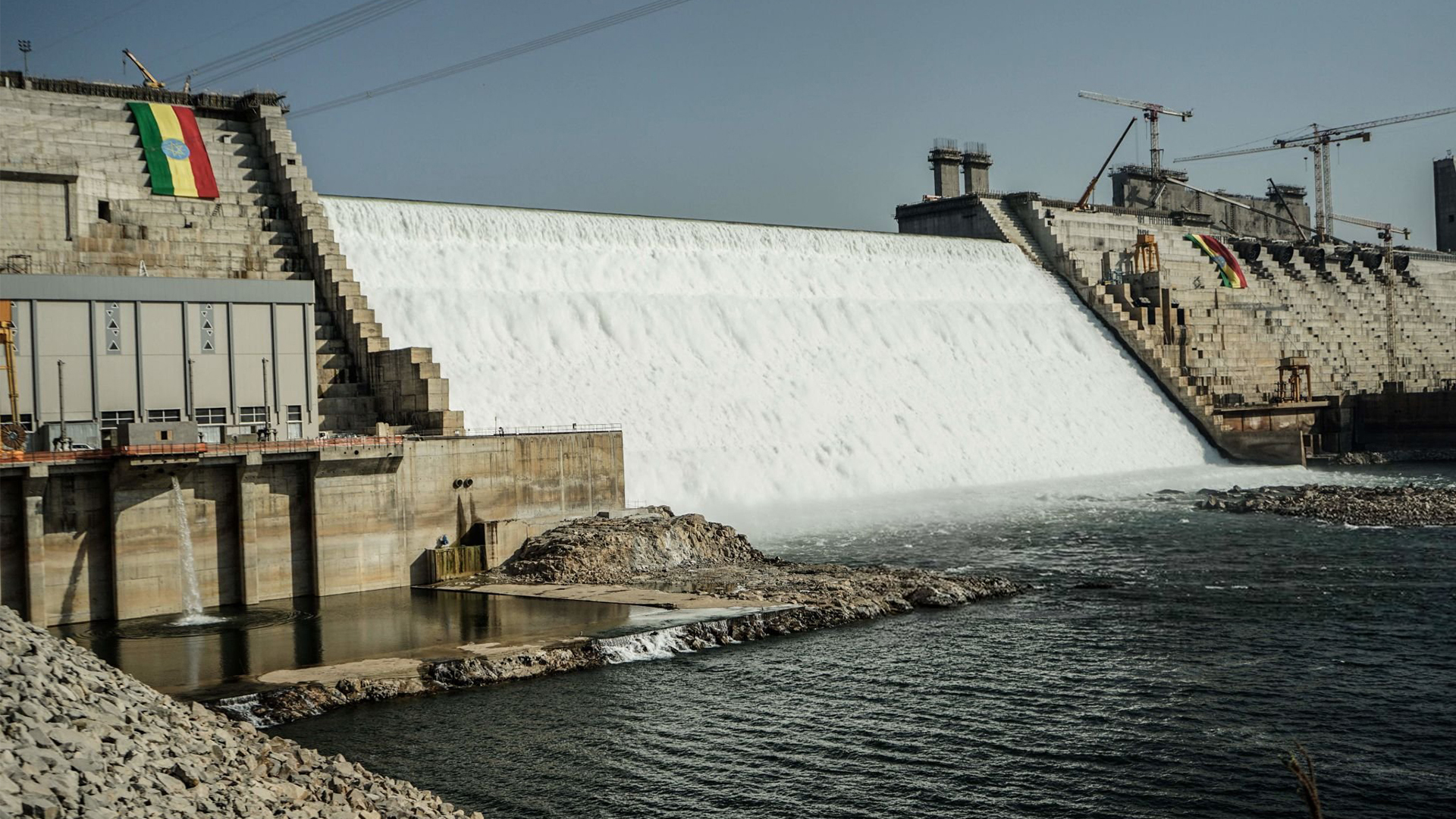Ethiopian Member of Parliament Kamel Shamswa expressed his admiration for Egyptian Foreign Minister Sameh Shoukry's raising of the Renaissance Dam crisis in his speech before the Arab League Council at its meeting at the level of foreign ministers, considering that the place and timing of Shoukry's speech "surprised" his country.
He asked - in his interview with the "Beyond the News" program (8/3/2023) - about the relationship of the League of Arab States to the Renaissance Dam crisis, pointing out that the issue is African, and that if the meeting was within the institutions of the brown continent, raising the issue would have become logical, stressing that the relationship His country in the Arab countries is deep and strong and cannot be influenced.
These statements came against the background of Shukri's speech during his country's assumption of the presidency of the Council of the Arab League at the level of foreign ministers at the headquarters of the General Secretariat of the League in Cairo, as he warned in his speech against Ethiopia continuing to build and mobilize the Renaissance Dam without a binding legal agreement with the downstream countries, Sudan and Egypt.
During his speech, Shoukry stressed that the Renaissance Dam represents a pivotal issue of advanced priority for his country, and that Ethiopia's continuation of its procedures regarding it without an agreement has serious consequences for Egypt's national security, and represents a violation of the applicable rules of international law, and a violation of the UN Security Council presidential statement issued in September. September 2021.
And reports and satellite images taken last January showed that Ethiopia was continuing its preparations to start the fourth filling of the dam.
Shamsoa said that the time for this mobilization has not yet come, and therefore he finds the resumption of talking about the crisis "surprising", especially since it came at a meeting of Arab countries unrelated to the crisis, according to his estimation, just as Egypt has not yet been able to prove that it was affected by the three stages of mobilization. previous.
The Ethiopian parliamentarian made it clear that his country does not oppose returning to negotiations again, but at the same time it does not see a justification for raising the crisis in the wrong place, and that before involving the Arab countries in the matter, it is necessary to invest in diplomatic relations between the two countries, through joint meetings.
He continued, "We have an opportunity to return to dialogue, but in its appropriate place and situation, and we have no demands, but at the same time we refuse to impose positions and external interference."
Egypt is counting on the Arab position
On the other hand, Ambassador Hussein Haridi, the former Egyptian assistant foreign minister, confirms that Egypt - which suffers from water scarcity and climate changes - has the right to present its visions regarding the Renaissance Dam crisis, and other issues before the available platforms, including the League of Arab States, and to demand the support of countries and their support to reach into a permanent agreement binding on all parties.
He pointed out - in his interview with the Behind the News program - that it is not the first time that Egyptian officials have spoken in international forums about the crisis, stressing that the meeting of Arab foreign ministers is an important platform through which Egypt seeks to mobilize Arab support for its rights in the case.
He stressed that Ethiopia should not consider this an Egyptian attempt to antagonize the Arab countries against it. When Egypt presents this "existential right" to it, it is trying to use its Arab and international relations to push Ethiopia to review its steps, and pave the way for the continuation of negotiations, and it relies on it a lot.
Haridi stressed that Egypt's efforts do not come within the framework of pressure and threat, adding, "We do not question Ethiopia's intentions, but why do we not translate these intentions into a memorandum of understanding so that Ethiopia can reassure Egypt that its current government and future governments will ensure that it will not be affected by the operation of the dam."

